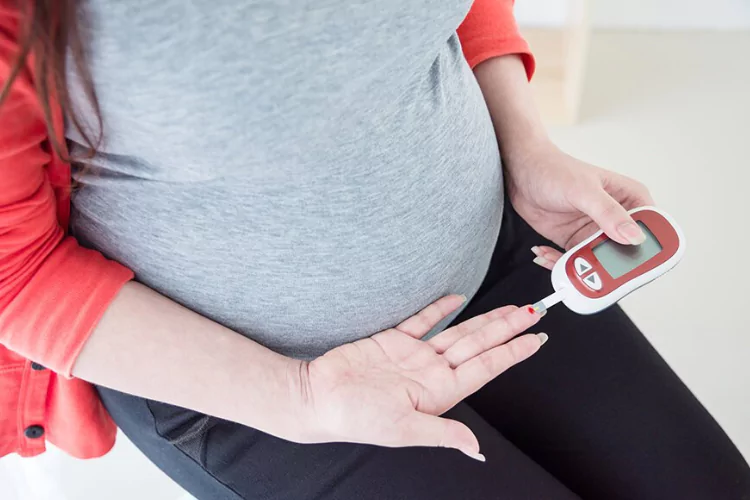Hey People! Childbearing is among the most fulfilling and life-defining events in most women’s lives. The anticipation and realization of a new life are so thrilling that pregnant women are encouraged to alter their habits for the coming baby’s health in so many ways. But what if we told you that one of the strategies to protect your child’s future health could be as easy as exercise?
Current research indicates that exercising during pregnancy may benefit the woman beyond enhancing her health. It might play a significant part in decreasing the chances of asthma and respiratory problems among babies. Asthma is a chronic disease of childhood that is known to have many possible causes, including mothers’ behaviors during pregnancy. This raises an important question: Can exercise during pregnancy protect your baby from asthma?
As we proceed, we will also discuss how exercise might impact asthma in your baby and the evidence on these claims before outlining ways of exercising safely during pregnancy. We will also provide some statistics and data from other sources to support these arguments; therefore, this article will benefit every expecting mother who wants to BOOST her and her baby’s health.
Let’s begin.
Table of Contents
Asthma and Pregnancy: The Connection

Asthma is a long-term disease affecting the human respiratory system. It is characterized by breathlessness, wheezing, cough, and SOS. Self, as proposed by the CDC, chronic asthma in more than 25 million Americans, and pediatric asthma incidence has increased. Pediatric asthma is most worrying because it might cause children to miss school, have activity restrictions, and, at times, even have a trip to the emergency section.
Asthma in children is a and has been found through research studies to be triggered by genetic and environmental factors. For example, children who experience ecological factors, including tobacco smoke, air, and allergens, stand high risks. Despite these null findings, recent efforts are being made to define the role that antenatal maternal factors may play in increasing a child’s risk of developing asthma.
The present showed that exercise during pregnancy reduces asthma risk by about 48 percent.
Several scientific studies have discussed maternal physical activity during pregnancy and asthma risk in children. The first and perhaps the most famous theory is that exercise assists the body’s immune system in strengthening and enhancing the inflammation processes. It also encourages the lungs of the fetus to develop better and with greater capacity so that asthma cannot have a chance to grow.
The Next Section shows that It Impacts the Immune System’s Growth
Pregnancy is only a period in a woman’s life that experiences many transformations in the immune system. Studies have indicated that moderate exercise intensity effectively alters the immune response to the key factors associated with immune tolerance to the fetus.
Researchers who reported in the American Journal of Respiratory and Critical Care Medicine also discovered that inactive pregnant women gave birth to inactive babies, and these babies had a lower chance of developing asthma and allergies.
This benefit is believed to be because exercising prevents inflammation and reduces the chance of the baby’s immune system being overactive. In layperson’s terms, exercise might help create what the medical profession refers to as a healthy immune system that may not overreact to allergens, which is the nature of asthma.
Improved Lung Development
Lung development is another cause widely considered when it comes to asthma prevention. Another study in the European Respiratory Journal found that if mothers exercised during pregnancy, their babies had better lung capacities in early childhood. This is evidenced by improved PFTs at birth and a decreased rate of childhood wheezing in the first years of life.
One idea suggests that exercising during pregnancy can enhance oxygen flow to a fetus, strengthening the lungs. This will increase the oxygen supply to the fetus’s lungs, strengthening lung tissue and providing stronger lungs after birth.
Fewer Chances of Developing Gestational Conditions That Lead to Asthma

Two other disorders of pregnancy comprise gestational diabetes and preeclampsia that exert potentially damaging effects on both the mother and the child in later life. Both cot and condensation are related to an increased possibility of childhood asthma.
Proper exercise while pregnant will help to alleviate the chances of developing these complications. If mothers remain active, their probability of developing Gestational Diabetes, which may lead to childbirth of a child who may nose or may have other respiratory illnesses like asthma, is also reduced.
The Science: What Do the Studies Say?
Pregnancy exercise has been a subject of research in many papers to determine the chances of preventing asthma in babies. Here are some key findings:
A 2019 Study from the University of Bergen (Norway): The framework of this research involved tracking more than one thousand women and children. In the same study, it was discovered that women who按做 physically exercise during their pregnancy were 22 percent less likely to give birth to asthmatic children than the women who did not exercise at all.
Research Published in the European Respiratory Journal (2018): A meta-analysis of several studies showed that maternal exercise lowered childhood wheezing and asthma symptoms during the first few years of childhood. This was attributed to enhanced immune regulation and functional lung maturation of the fetus.
The American Journal of Respiratory and Critical Care Medicine (2017): This study found that exercising during pregnancy can prevent risky allergic diseases in children. The study described crucial immune processes that reveal the importance of exercise in immune tolerance and inflammatory responses.
Argument Justification: Key Facts and Figures
Asthma Rates: The CDC states that asthma is the leading chronic condition among children globally, with about 6.1 million children affected in the United States.
Effect of Exercise on Pregnancy: ACOG’s guidance for exercise during pregnancy is for expectant mothers to exercise 15-20 minutes daily or at least 150 minutes of moderate-intensity exercise per week. Research indicates that women who adhere to these rules have fewer chances of being diagnosed with gestational diabetes, preeclampsia, or complications during labor.
Childhood Asthma Prevention: A 2020 study by the Journal of Allergy and Clinical Immunology of pregnant women revealed that if the mother exercises, the child will be 20% less prone to asthma by the age of five years.
Exercises That Pregnant Women Can Undertake
The advantages of exercising when pregnant are realized, but exercise should be done carefully during this period. Contrary to what most people think, not every form of exercise is good for pregnant women, especially if the woman is in her third trimester. Here are some safe and effective types of exercise:
1. Walking
Walking during pregnancy is one of the most secure and easy activities that might improve cardiovascular health and mood and prevent excess weight gain.
2. Swimming
Swimming is a good exercise that exercises the entire body without much stress on the body’s joints. It is also effective for promoting blood circulation and for relieving edema.
3. Prenatal Yoga
Like any prenatal exercise, prenatal yoga aims to enhance flexibility and help relieve stress and relaxation. It also assists in gaining muscle power and tone for labor and delivery.
4. Stationary Cycling
Riding an exercise bike is also clearly another form of non-weight-bearing exercise that can be done to maintain cardio fitness during pregnancy.
5. Strength Training
Lighter weights with correct form and manageable load should be permissible in strength training and, if applied correctly, could prove useful for childbirth endurance.
The following video explains about Exercises That Pregnant Women Can Undertake:
Conclusion
Pregnancy exercise is good not just for the mother but also for the fetus and the smooth progression of the pregnancy. Asthma is a chronic lifelong disease that has strong genetic and environmental determinants. Still, new studies show that exercise during pregnancy can also have a direct bearing on the likelihood of childhood asthma.
Being active during pregnancy has other benefits; for instance, pregnant women gain a strong immunity to help fight diseases for themselves and their unborn child and enhance the fetus’s lungs if they have to breathe immediately after birth.
Therefore, whether it is a walk, swimming, or prenatal yoga, adding exercise to your pregnancy regime may be one of the best things you ever did — for you and your unborn child.
FAQ
1. Can I prevent asthma in my baby by exercising while pregnant?
Still, to some extent, data suggest that women who exercise during pregnancy should aim for moderation since it can minimize the chances of the baby developing asthma or some other respiratory disease. Early evidence suggests that exercise supports the immune system and enhances the growth of the lungs, which may assist with asthma prevention.
2. How many weeks pregnant should I start exercising?
ACOG advises pregnant women to perform at least 150 minutes of moderate-intensity exercises weekly. This could entail strolling, swimming, or prenatal yoga. Provided by the mother, the development of excellent health of the child and observation of baby-positional factors would be beneficial.
3. So, if I was not exercising before pregnancy?
It’s never too late to start! Even if you were not exercising before pregnancy, you can get into physical activity in the earliest weeks. Consult your doctor first before incorporating any new food into your diet since it might not be safe for both you and your unborn child.
4. Is it safe for pregnant women to exercise?
For most pregnant women, exercise is safe, though it is always recommended not to overdo it. Some activities one should avoid include those that require bending over, stretching, or doing activities on staircases; one should also always ensure that one takes water before undertaking any exercise. If you have any medical problems or issues, please consult your doctor.
5. What other things might be useful to avoid asthma in my baby?
Apart from exercise, the following are also useful in preventing asthma in children: Eating a balanced diet and avoiding foods rich in additives, foods containing harmful chemicals and fumes, and stress, as these can also trigger asthma in children.




